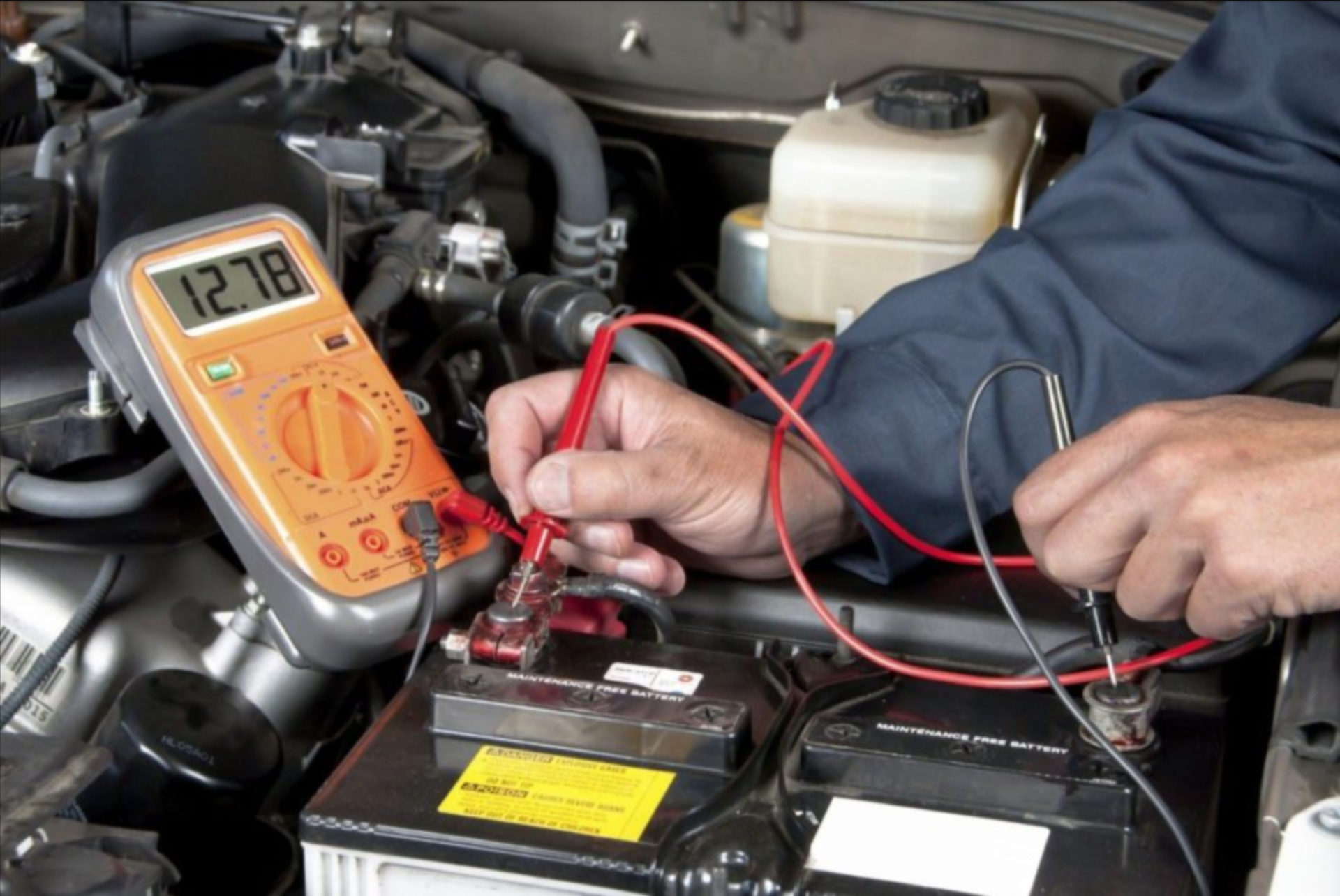
Truck drivers and fleet managers rely on immediate help from mobile truck repair mechanics in their area during emergency breakdowns. While these skilled professionals are ready to respond, challenging weather conditions can affect their operations.
These adverse weather scenarios such as frigid winter temperatures or scorching summer heat can create hazardous work environments for mobile heavy-duty mechanics, potentially leading to increased downtime for those seeking repair.
This article will explore how chancing weather affects roadside truck repair operations during emergency breakdowns and how it impacts the performance of mobile truck mechanics during emergency roadside repairs. It will also highlight effective strategies for overcoming these challenges head-on.
Keep reading for more.
Different Weather Conditions and How They Interfere With Roadside Emergency Truck Repair Services
Different weather events may promote truck breakdowns and hinder mobile mechanics from coming to your destination to fix the issue, leading to costly repairs and increased downtime. These weather events include heavy rains, floods, snow and ice, extreme temperatures, and strong winds and storms.
Let's explore how these different weather situations will affect mobile mechanics' operations to fix and maintain semi-trucks during an emergency breakdown.
1. Heavy Rains and Floods
If you have an emergency breakdown during heavy downpours, you may have to wait for the rain to stop for a mechanic to rescue you. Even though they are nearby, the mechanic may have to wait for the rain to let up before they can tend to your truck.
Additionally, heavy-duty mechanics may find it dangerous to navigate to your location during heavy rains because of poor visibility, which can lead to accidents.
With heavy rains come floods. Areas with poor drainage can flood the roads, leading to closures and thus limiting access to stranded truck drivers. Note that sometimes, these floods lead to poor traction, which will make mobile mechanic drivers to find it difficulty to control their service van, which may lead to accidents.
Sometimes, your area may be rain-free, or experience light showers, while your mobile mechanic’s location may experience the opposite. Because he wants to make it up to you to ensure you maintain your schedule, his service truck may break down, as water may destroy some of the electrical components in his vehicle, delaying his arrival or having the repair rescheduled or canceled. You will have to wait long, requiring the repair to be scheduled for another mechanic for an early repair.
Since mechanics will not work on your vehicle during heavy rains and floods, you must wait for the rains to stop and for water to drain before the repair process can continue. This will lead to downtime, high costs, and a delayed delivery that will interfere with your daily operations.
2. Ice and Snow
During winter, you may experience snow of different intensities. Heavy snowfall can sometimes be accompanied by freezing rain or light, dry snow easily carried away by strong wind (blizzards). The blowing snow creates a whiteout that blurs the surroundings, reducing visibility.
Heavy snow will also accumulate on the surface, blocking roads and destroying power lines, leading to road closures. Due to low temperatures, the snow showers will cool upon reaching the ground, forming a slippery, clear, or dark icy surface.
How Ice and Snow Situations Affect Mobile Repair Operations
- With thick ice covering the roads, vehicles are unlikely to navigate them due to their slippery nature, which reduces the tire's traction against the surface. Since no driver can drive through such a road, your mobile mechanic will have to postpone the repair or use a different route that may be long. This will force you to wait long hours for help to arrive, increasing downtime.
- The cold temperatures may make the mechanic’s work more complicated. The nuts and bolts holding vehicle compartments may fail to untighten due to contraction or sometimes require a lot of energy to loosen them.
- What about the engine's performance? With freezing temperatures, the coolant, lubricants, and other fluids in your engine may solidify, reducing their flow. Low oil flow will strain your engine, resulting in wear.
- Additionally, with the freezing temperatures, your technician’s hands may be numb and fail to operate, requiring warmth.
- Working in cold conditions can expose you or your heavy-duty mechanic to health issues such as hypothermia, which occurs when the body temperature drops too low. Symptoms of hypothermia include excessive shivering, slurred speech, slow breathing, a low heart rate, and drowsiness.
- Heavy snow can also damage the mechanic's service van while they are en-route to your location. This will force them to wait long hours before they visit your destination, since they want to keep their vehicle intact.
- Sometimes, you will be forced to tow your semi-trailer to a sheltered area where they can fix it, which will incur extra costs.
3. Extreme Heat
During summer, temperatures will rise beyond the optimal, and driving in such a state may be troublesome. Your vehicle needs a functioning cooling system to keep you going while you're behind the wheel. Driving with your AC on will consume a lot of fuel, reducing fuel economy.
The fans in your truck’s cooling system draw in cold air from outside to help dissipate excess heat from the coolant through the radiator. However, the system will fail to release heat effectively since the outside air is also hot. As a result, the heated coolant will return to the engine cylinders, leading to engine overheating.
If the engine system overheats, several issues may arise:
- The head gasket could blow, allowing the coolant and oil to mix.
- The engine block might crack, leading to water leaks that decrease coolant levels.
- Additionally, the cylinder heads could become distorted, resulting in engine misfires and a loss of compression.
The hot summer temperatures will also cause your battery to overheat, reducing its lifespan. The tires will also wear out fast and burst, increasing roadside emergencies.
Note that, with extreme hotness, the metal components of your vehicle will gain heat and sometimes be unbearable to touch. This will slow the repair process as your mechanic will require ice to cool their temperature before fixing your semi-trailer.
Since your mobile mechanic operates in the open, working under direct sunlight can make them uncomfortable. They will physically drain and even expose themselves to heat-related sicknesses. Because of this, mechanics may decline your request, forcing you to wait a long time before help arrives or haul your truck to a well-equipped repair shop with cooling systems.
4. Strong Winds and Storm
Imagine responding to a call from a truck mechanic who is a few kilometers away, and the weather alerts report a wind gust of 30mph. Brought about by the spring storm, the strong winds will make it hard for your service van to balance on the road, leading to accidents.
Strong winds carry sand and dust along. This makes working under your truck's hood hard for a mobile mechanic. Moreover, tools and other lightweight vehicle parts can be blown off and destroyed, or you may lose them.
Moreover, you may find it challenging to handle the equipment during repair, secure the parts, or even stay balanced while working.
Snow storms and thunderstorms will make outdoor work inevitable. This will delay the roadside truck repair operations, increasing downtime.
How to Stay Safe During Bad Weather: Safety Precautions for Mobile Mechanics and Truck Operators
Safety comes first. These practical measures will help you be safe while operating in bad weather. This section will discuss different precautionary measures for mobile truck repair operations and operators.
Precaution Measures for Mobile Mechanics
- Turn on the weather alert notifications to stay updated on weather changes. This will help you know when to leave for a roadside repair and when to wait.
- Wear appropriate weather gear to keep you safe during harsh weather conditions. For example, wear a vest during extreme summer temperatures and insulated clothing for cold weather.
- You also need a backup power source like portable batteries and generators to keep you powered in case a storm disrupts the power supply.
Safety Measures for Truck Operators
- Always be alert to weather changes to avoid operating in extreme weather conditions and affected areas. You can set up notifications for weather news and updates to keep yourself informed.
- Regularly inspect your semi-truck to ensure it is in good condition and perform preventive maintenance to reduce the chance of unexpected breakdowns during lousy weather.
- Always carry emergency supplies with you, such as food, water, a flashlight, protective wear, and other essential repair tools like chamber cables to sustain and help you in case of an emergency breakdown during an extreme condition that will delay mechanics from arriving at your destination in time.
- Fleet managers should ensure their vehicles are equipped with specialized weather-appropriate wipers and tires and provide regular maintenance.
- Inspect your heating, ventilation, cooling, and air conditioning system (HVAC) to ensure it operates effectively.
- Truck drivers should also keep a distance from other vehicles to avoid pumping in cases where the roads are slippery or the brake system malfunctions, causing the truck to take a long time to stop.
- Ensure your tire threads are deep to increase traction on the surface.
- Check your truck battery to ensure it is in good condition.
- Fill up the fuel and coolant levels to a sufficient level to avoid running out if you are stuck.
How Technology and Early Planning Will Help You Overcome the Weather Challenges
A GPS Tracker and Weather Monitoring Systems
The weather monitoring systems will provide you with real-time weather reports. Early reports will help you plan when to leave and what supplies you need in an emergency.
With the GPS Tracker, you can decide on the routes to your destination. The system will also help your fleet manager to track your location during an emergency breakdown.
Truck Repair Mobile App
The truck repair mobile app will help you find the mobile repair mechanic near you during an emergency breakdown and communicate with your technician for instant responses.
Weatherproof Tools and Equipment
Investing in durable and weatherproof equipment will help mechanics perform their operations efficiently without any disruptions during bad weather.
Key Takeaways
Bad weather is a significant challenge in the trucking industry. It affects both truck drivers and mobile mechanics. Heavy rain, snow, extreme heat, and strong winds make roadside repairs challenging and dangerous. Truck drivers and mechanics can reduce delays and work more safely with safety measures, technology, and preparation. They should stay informed about weather conditions, invest in proper gear, and use GPS tracking and mobile repair apps. This way, fleet managers and mechanics can improve efficiency and reduce downtime. Being proactive about these challenges is key to keeping trucks on the road, even when weather conditions are challenging.
“Being a mobile mechanic allows me to earn significantly more than I would in a traditional garage setting. The convenience I provide to customers, coupled with the lower overhead costs, means I can charge a premium for my services and keep a larger share of my earnings.”







